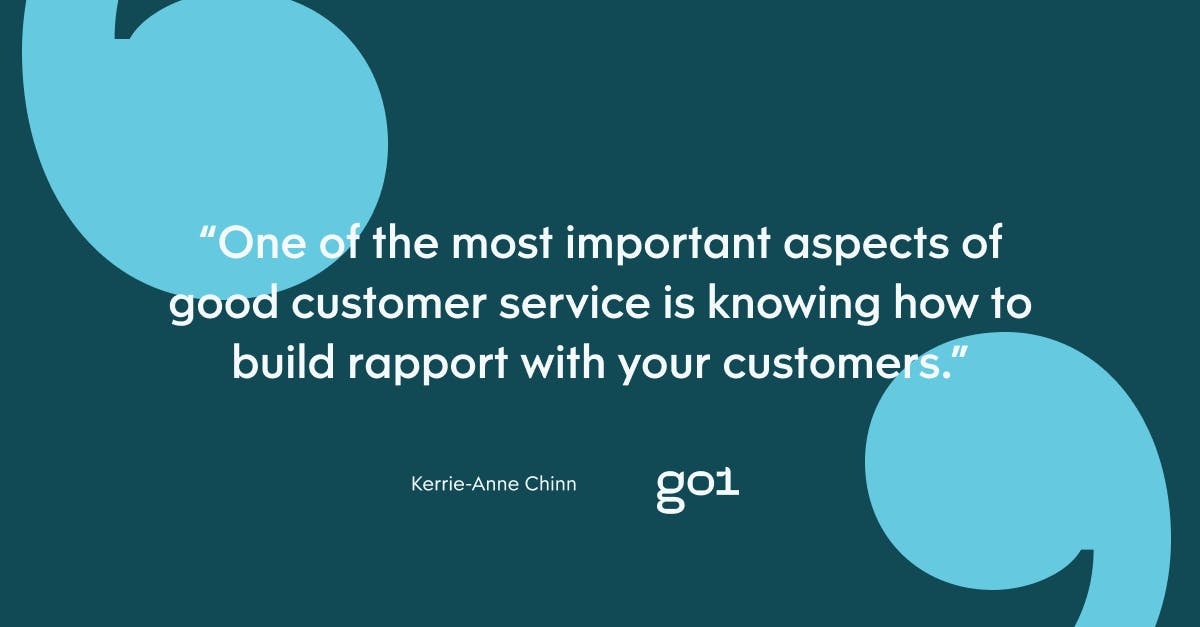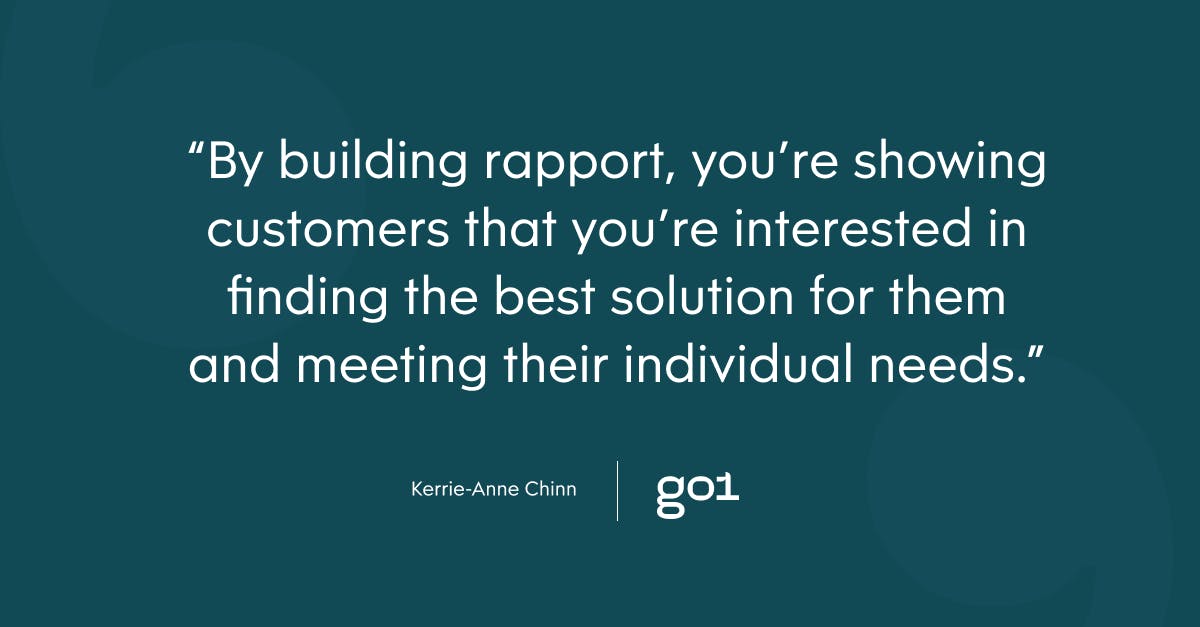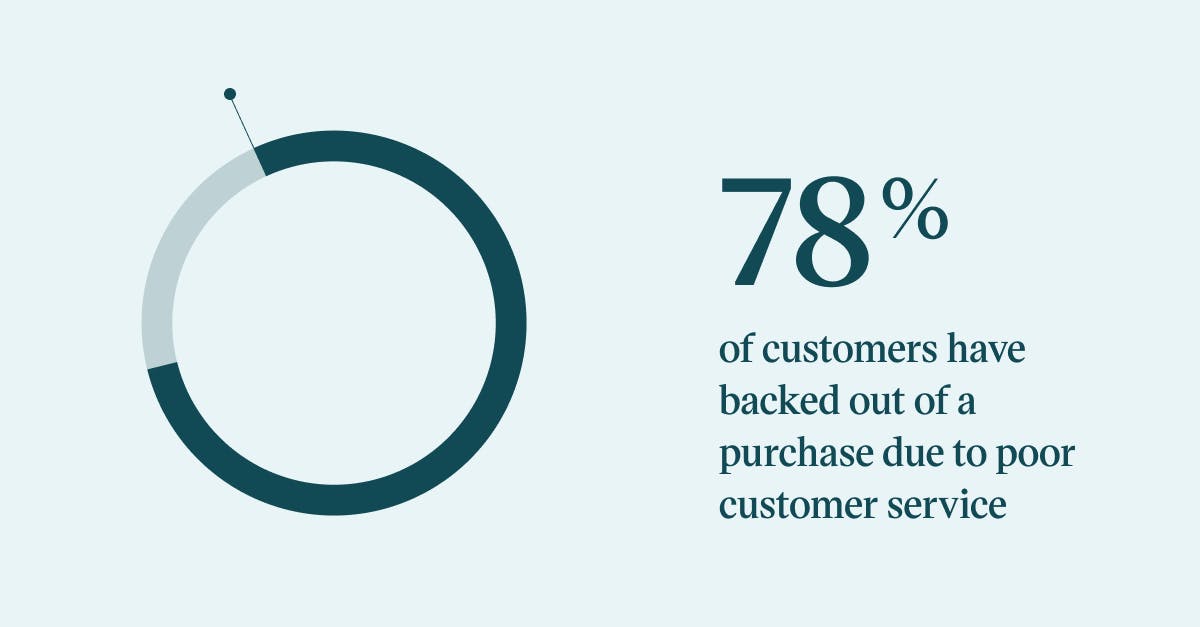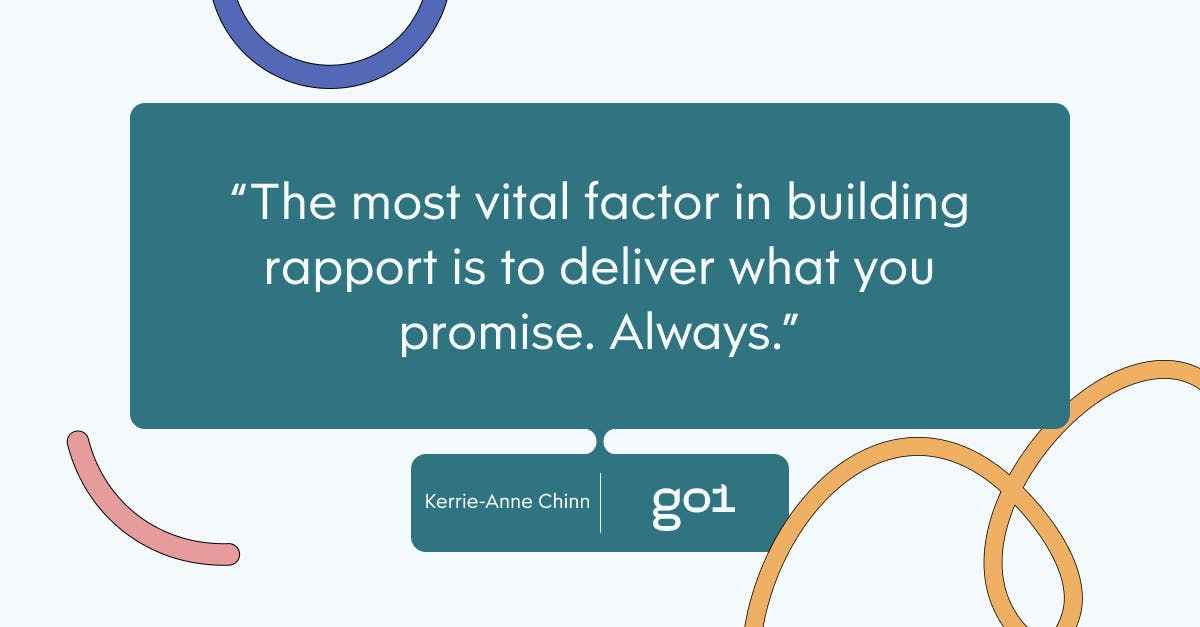
Building rapport with customers through customer service

It’s nice to have the most up-to-date tech gear, a fancy coffee machine, and a cool open-plan office. However, if your business doesn’t deliver high-quality customer service consistently, it’s almost impossible to stay ahead of the competition.
Think of your business like a pyramid. Without a solid, dependable foundation — in this case, excellent customer service — the rest of the bricks will inevitably crumble. Only once that is reliably in place can you move on to flashier things, like the most up-to-date gadgets.
As such, providing consistently excellent customer service is non-negotiable. And one of the most important aspects of good customer service is knowing how to build rapport with your customers.

Rapport is that feeling when two or more people are on the same wavelength. Sometimes, it can be hard to quantify, but you always know it when you feel it. When you’re building a rapport with customers, you feel ‘in sync’ with each other and are likely to have a good understanding of where the other person is coming from.
When people have a solid rapport, communication and ideas flow easily, leading to high-quality customer service. You might even feel like you’re two steps ahead of your customers, predicting their needs before they even know them!
With this in mind, we’ll take you through how to establish your foundation by building rapport with customers to improve your team's customer service. We’ll start by analysing the benefits of building rapport with customers, before outlining practical tips for building rapport with customers, and finally detailing online customer service training courses to help you get started.
The benefits of building rapport with customers
The benefits of building a strong rapport with customers are manifold. Think back to a time when you had a strong rapport with someone else. It could have been a teacher, a manager, or your best friend. How did that feel? In all likelihood, you felt heard, trusted, and like your needs were being met. Customer service is no different. For starters, by developing a good rapport with your customers, they’re more likely to:
- Like and trust you
- Communicate openly
- Feel confident in your abilities and product knowledge
- Respond well to you closing a sale
- Return to your business in the future
- Recommend your business to others
According to professional speaker and consultant Michele Payn-Knoper, building rapport with customers is critical to show them “you're sincerely interested in a mutually beneficial relationship, critical to selling solutions.”
Or, as ZenDesk explains, “developing rapport with clients can go a long way toward building customer trust and improving satisfaction rates. But you have to show genuine interest in your buyers. Otherwise, your attempts might come off as insincere. And with 90 percent of consumers saying authenticity determines who they buy from, insincerity is a big no-no.”

In other words, by putting in the effort to build rapport, you’re showing customers that you’re interested in finding the best solution for them and meeting their individual needs. Not only that, but you’re also showing that their needs sincerely matter to you, thereby building trust.
Customer service statistics
And this is only the tip of the iceberg, with research showing how critical building rapport can be. For example, Salesforce finds that 80% of customers believe the experience a company provides is as important as their product or service. Unsurprisingly, this means that 90% of consumers believe that customer service is either somewhat or very important when choosing a company to purchase from.
Additionally, 67% of customers would be willing to pay more to receive a great customer service experience, while 73% of customers will remain loyal to a company with friendly customer service reps.
Ultimately, these statistics mean that building rapport can benefit your bottom line. In fact, 84% of businesses that prioritise improving the customer experience enjoyed increased profits.
So, what happens when your customer service isn’t up to standard? Globally, companies lose $1.6 trillion per year due to poor customer service. That’s right, trillion. With a T.
Further, 62% of customers say they share their bad experiences with others, while angry customers share their bad experiences with 15 people on average. Given this, you're not just losing their business by failing to build rapport, but potentially losing many other people’s business too.

Finally, 78% of customers have backed out of a purchase due to poor customer service. The bottom line? It’s worth taking the time to build rapport with your customers. Failing to do so could cost you significantly in the long run.
How to build rapport with customers
There’s an old saying that customers first buy into the person and then into the product. That is, they need to feel like they can trust you and like you if they’re going to build a good rapport with you. So, how do you make sure that you’re able to build rapport with each customer?
At its core, rapport is all about establishing a mutual feeling of friendliness and trust. One of the best ways to do this is to highlight things you have in common. Pay close attention to how each customer prefers to communicate and do business. Do they prefer a quick phone call to an email? Would they appreciate a casual, friendly approach or respond better to a more formal communication style?
Some people like to chat before getting down to business, while others respond negatively to any attempts at small talk. Good customer service or sales reps will know how to adapt to different customers to develop a unique and positive business relationship with each individual.
Most importantly, make sure you’re always practising active listening with customers. You need to focus 100% on what they’re saying to be able to meet their needs, wants, and preferences. Active listening is also a sign of respect, meaning customers will feel far more comfortable with you than with other customer service professionals.
Other tips for building rapport with customers include:
- Learn their name and make sure you’re pronouncing it correctly — while this may sound basic, nothing breaks rapport quite like someone calling you Julia when your name is actually Julie.
- Be mindful of your customer’s preferred pronouns.
- Practice empathy.
- Don’t be afraid to go ‘off-script’ when appropriate.
- Restate their problem in your own words to show that you’re listening.
- Establish trust by mirroring the customer. As ZenDesk explains, “sales teams use mirroring—the act of imitating the actions or words of others—to build affinity with prospects. Your support team can leverage this same tactic to develop rapport with consumers. By mirroring a customer’s tone, language, or volume level (within reason), agents can communicate they’re on the same page with them.”
- Ask open-ended questions.
- Don’t be afraid to ask for help if you don’t know the answer to something.
- Try to find common ground and look for relatable, shared experiences.
- Aim for a personalised outcome, not a generic solution.

Above all, the most vital factor in building rapport is to deliver what you promise. Always. While this should go without saying, customer service people often promise you the world but fail to deliver. Therefore, delivering exactly what you say — every time — is the most simple and effective way to create trust and build rapport with your customers.
If you say you’ll give someone a call, send a follow-up email, or send them a sample product, make sure you do. It’s as simple as that! Not keeping your promises or falling back on your word will quickly undo all your hard work and break your customer’s trust.
Online customer service training
Ready to improve the way you build rapport with customers?
Online learning is a fantastic way to improve your customer service skills, as you can learn aspects of customer service training through short, engaging eLearning courses.
For example, with the Building Rapport: Building Positive Relationships course, you'll learn all about developing rapport with your customers, as well as the four different relationship styles and how to manage them.
Or, you could check out these courses on How to Build Rapport and Building Rapport in Customer Service.
Remember: taking an online course in customer service isn’t just beneficial for people working in a customer-facing role. Improving your customer service skills will help your professional development — no matter your job. Building rapport is a highly transferable skill whether you’re looking to impress a first date, ace a job interview, or simply build rapport with your boss and teammates.
For more insights, subscribe to the Go1 newsletter to stay on top of all the latest L&D trends. Or, you can book a demo today to find out how Go1 can help with your team’s learning needs.




